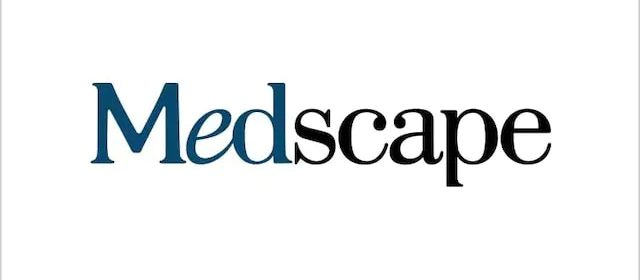Treatment Reduces Symptoms, Viral Load in RSV Challenge Study

(Reuters Health) – An experimental therapy against respiratory syncytial virus (RSV) was able to bring down viral load, reduce symptoms scores and generate less mucus than placebo therapy, according to a phase 2a challenge study involving 178 adults.
The treatment, known as EDP-938, was given orally for 5 days at different doses beginning as soon as nasal wash samples revealed that an RSV infection had taken hold.
“All the tested regimens were superior to placebo,” chief author Alaa Ahmad told Reuters Health in a telephone interview. “We did not identify any safety concerns.” Dr. Ahmad is vice president of clinical pharmacology at Enanta Pharmaceuticals, which is developing the drug and paid for the study.
For placebo recipients, the areas under the curve (AUC) for viral load were 790.2 and 879.0 when time was measured against log-10 copies per milliliter in the two parts of the study. The areas in the treatment groups were 196.2 for the 200-mg twice-daily group, 173.9 in the 300-mg once daily group, 217.7 for the 300-mg twice daily group and 204.0 for the 600-mg once-daily group.
When the researchers assess AUCs for mean total symptom scores, the treatment was also significantly more effective than placebo.
They were 478.8 and 432.2 for placebo, 89.6 for the 200-mg twice-daily group, 99.3 in the 300-mg once-daily group, 181.8 for the 300-mg twice-daily group, and 124.5 for the 600-mg once-daily group.
“In both parts of the trial, mucus production was more than 70% lower in each EDP-938 group than in the placebo group,” the Ahmad team reports in the New England Journal of Medicine.
Patients in the 200-mg twice-daily group were initially given a 400-mg loading dose, those in the 300-mg twice-daily group received an initial 500-mg loading dose, and volunteers in the 300-mg once-daily group got a 600-mg loading dose.
Data from the first 115 patients were reported by Enanta in a June 14, 2019 news release. The new report also includes findings from 63 patients who made up part 2 of the study and received the lower doses of the drug.
EDP-938 modulates the viral nucleoprotein to act as a nonfusion replication inhibitor against RSV, and early research has suggested that it can work even after the virus has infected a cell. The new study used the RSV-A Memphis 37b strain. The volunteers were kept in quarantine for 12 days.
In a Journal editorial, Drs. Larry Anderson of Emory University School of Medicine in Atlanta, Georgia, and Edward Walsh of the University of Rochester School of Medicine in Rochester, New York, cautioned that other anti-RSV drugs have shown promise in challenge studies “but the results were disappointing in follow-up clinical trials.”
The problem, they said, may be timing.
“In challenge studies, the drug is given early, whereas in clinical trials of natural RSV infection, the drug is given when viral titers have peaked, since patients generally present for care 3 to 8 days after symptom onset (i.e., 5 to 10 days after infection, with an assumption of 2 days between the earliest onset of PCR positivity and the onset of symptoms),” they write.
Thus, challenge studies give the drug an edge.
“Even in infants who had not been previously infected with RSV, viral titers are in decline at the time of hospitalization, probably because of effective viral clearance by rapid innate immune responses. Thus, disease caused by active virus replication would more likely be affected by treatment in challenge studies than in clinical trials,” Drs. Anderson and Walsh write.
Enanta has undertaken a phase 2 study of the drug in community-acquired RSV and expects to report topline results from that trial, known as RSVP, in the second quarter of this year despite being hampered by COVID-19.
School closings, mask requirements, lockdowns and travel bans “pretty much shut down the appearance of the flu and RSV. It was only later last year that you started to see RSV and flu popping back up” after enrollment stalled, said Jay Luly, Enata’s chief executive officer and director.
But last year’s uptick in cases “allowed up to complete enrollment,” he told Reuters Health by phone.
Another study, RSVPEDs, will look at the drug in pediatric patients and enrollment is expected to continue into next year. The drug is also being tested in adult hematopoietic cell transplant recipients.
In both parts of the challenge trial, the adverse events were generally mild and resolved. “No serious adverse events that led to discontinuation of the trial regimen occurred, and no participant was withdrawn from the trial as a result of an adverse event,” the researchers said.
RSV in adults accounts for 177,000 hospitalizations and 14,000 deaths in the United States each year. It sends 57,000 infants and young children into the hospital annually, and it kills an estimated 94,600 to 149,400 children under 5 worldwide each year.
“There really are no approved therapeutics for this infection even though it was characterized in 1956. It’s long overdue. Even before COVID, RSV was a huge unmet medical need,” said Dr. Luly.
The challenge study “showed a very strong antiviral effect,” he added. “Now it’s incumbent on us to show this is effective in the real world.”
SOURCE: https://bit.ly/3BpXevq and https://bit.ly/3uKCAEQ The New England Journal of Medicine, online February 16, 2022.
Source: Read Full Article